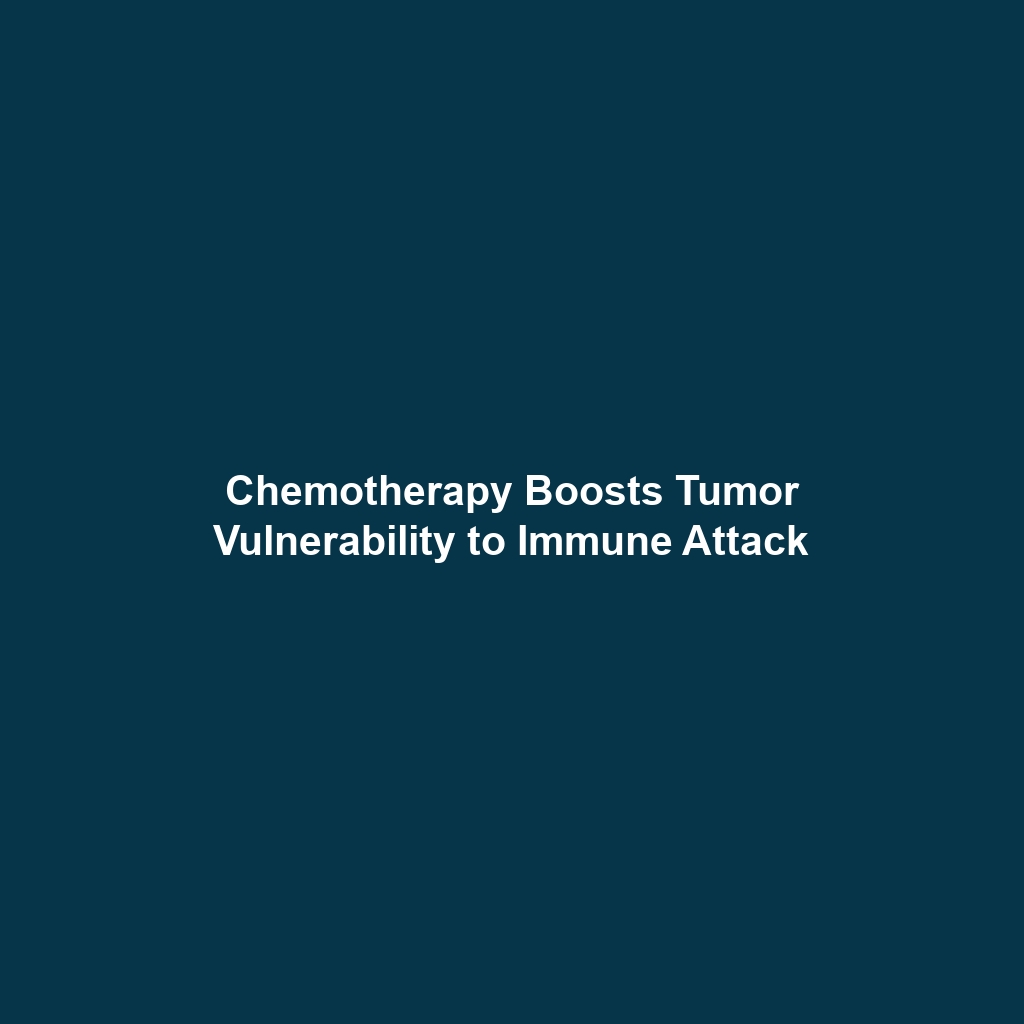<>
How Immune Overactivation Can Lead to Autoimmune-Like Conditions
Introduction
Immune overactivation plays a crucial role in the advancement of immunotherapy treatments for cancer, yet it can lead to serious ramifications, including autoimmune-like conditions. Understanding this relationship is essential as the field of immunotherapy evolves, particularly for patients with cancer who may experience enhanced immune responses. This article explores how immune overactivation can lead to autoimmune-like conditions, shedding light on its significance in the broader context of immunotherapy and cancer.
Key Concepts
To grasp how immune overactivation can lead to autoimmune-like conditions, it is important to understand several key concepts:
- Immune System Dysfunction: An overactive immune response can mistakenly target healthy cells, leading to inflammatory diseases.
- Autoimmunity: Autoimmune diseases arise when the immune system fails to differentiate between foreign pathogens and the body’s own tissues.
- Immunotherapy: Cancer treatments that enhance the immune system’s ability to fight tumors must be carefully managed to prevent overactivation.
These elements illustrate how immune overactivation intersects with autoimmune-like conditions and sheds light on the importance of balancing immune responses in immunotherapy for cancer patients.
Applications and Real-World Uses
Understanding the link between immune overactivation and autoimmune-like conditions has led to significant applications in the field of immunotherapy & cancer:
- Checkpoint Inhibitors: These therapies enhance immune response but require careful monitoring to prevent autoimmune reactions.
- Cancer Vaccines: Some vaccines stimulate the immune system but risk triggering overactivation that could result in autoimmune symptoms.
- Personalized Medicine: Tailored treatment plans consider individual risk factors for autoimmune conditions when deploying immunotherapy.
These applications demonstrate how understanding how immune overactivation is used in immunotherapy can lead to better patient outcomes.
Current Challenges
Despite advancements, significant challenges remain in studying and applying the knowledge of how immune overactivation can lead to autoimmune-like conditions:
- Identifying Risk Factors: Determining which patients are more susceptible to autoimmune responses is complex.
- Monitoring Immune Responses: Effective strategies are needed to monitor patients’ immune responses in real time.
- Balancing Efficacy and Safety: Optimizing treatment effectiveness while minimizing the risk of autoimmune-like conditions is a constant struggle.
These challenges highlight the issues in understanding how immune overactivation can lead to autoimmune-like conditions in the context of cancer therapies.
Future Research and Innovations
The future of immunotherapy and cancer treatment hinges on innovations that address how immune overactivation can lead to autoimmune-like conditions. Key areas of research include:
- Biologics: Development of biologic drugs aims to precisely modulate immune responses without eliciting overactivation.
- Next-Gen Therapies: Emerging technologies focus on personalized treatments that adapt to individual immune profiles.
- Predictive Models: Utilizing machine learning to predict which patients might experience autoimmune-like side effects from immunotherapy.
These innovations present exciting opportunities for the future of immunotherapy & cancer treatments.
Conclusion
In summary, the relationship between immune overactivation and autoimmune-like conditions is a critical area of focus in immunotherapy and cancer. It underscores the need for a nuanced understanding of immune responses to optimize treatment modalities. As research continues, the promise of innovative therapies that appropriately harness immune power while minimizing risks is on the horizon. For further reading, explore our articles on immune system dynamics and autoimmune disorders.

